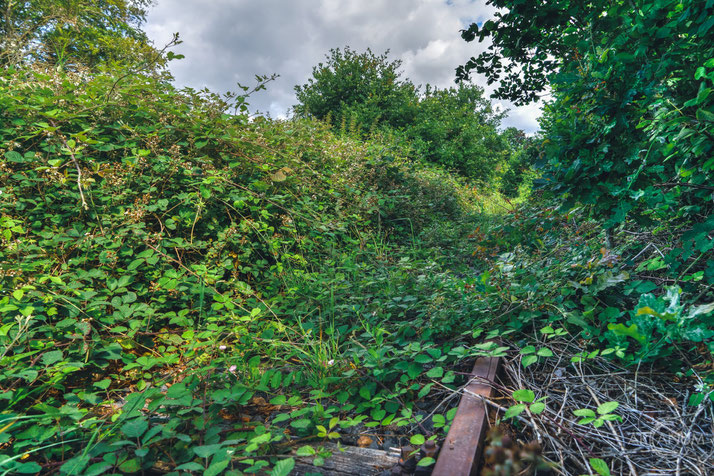Abandoned Railway Line M.
The Bad Malente-Gremsmühlen-Lütjenburg railroad line is a disused standard-gauge branch line in the German state of Schleswig-Holstein. It was built by the merchant Janus, who ran the Hotel Holsteinische Schweiz, which also gave its name to the station of the same name on the line.
The line has a length of around 17 kilometers. It connects Bad Malente-Gremsmühlen station with Lütjenburg in the "Holstein Switzerland".
The contract to build the line was signed on May 15, 1888. The line was opened in several sections.
Major changes were made to the line in the 1960s when the track had to be renewed for the military trains weighing up to 1,400 tons that served the military training area in Todendorf near Lütjenburg. In 1962/63, the rails, which had previously been laid in a sand bed, were replaced by S 54 rails laid in a new ballast bed and welded throughout.
Military freight traffic on the line ended in the mid-1990s. It was officially closed in 1996. Seasonal steam trains on the Hamburg-Lütjenburg-Hamburg route ran on it with special permission until the year 2000. The acquisition of the line by the Mittenwalder Eisenbahn-Immobiliengesellschaft in April 2005 saved the line from demolition. From 2006 to 2008, there was trolley traffic between Bad Malente-Gremsmühlen and Benz.
In 2022, the railroad line was purchased by a management company founded specifically for this purpose. The aim of this company is to preserve the line permanently and to implement a phased concept for reactivation in cooperation with the local authorities and the Malente-Lütjenburg Rail Transport Association. As the first stage of this concept, the entire route was cleared of vegetation. In summer 2022, a trolley rental service started operating in cooperation with Malente Tourism and Service Ltd..
In addition to its tourist use, the railroad line has been used as a research railway line for the REAKT research initiative since 2022. As part of the initiative, numerous universities and companies under the leadership of Kiel University want to carry out projects to research innovative rail technologies in rural areas on the line, which is not used for regular rail operations. In addition to AI and autonomous rail travel, these will also include projects on control and safety technology and the development of innovative vehicle concepts. A framework usage agreement was concluded for the research projects in 2022, initially until 2029.
Visited: July 12, 2020
Location: Near Malente-Gremsmühlen, Germany
Status: Active








